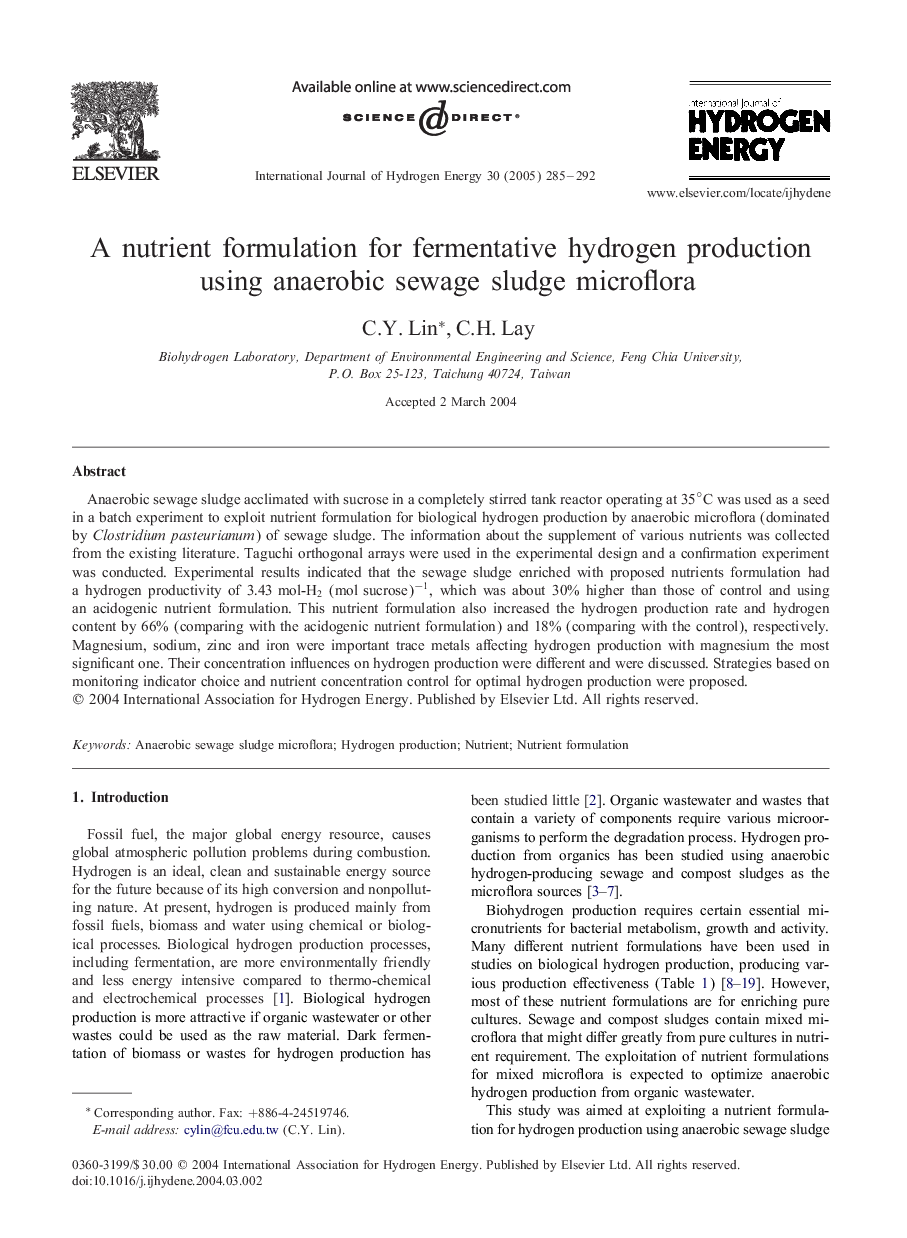| Article ID | Journal | Published Year | Pages | File Type |
|---|---|---|---|---|
| 9759351 | International Journal of Hydrogen Energy | 2005 | 8 Pages |
Abstract
Anaerobic sewage sludge acclimated with sucrose in a completely stirred tank reactor operating at 35°C was used as a seed in a batch experiment to exploit nutrient formulation for biological hydrogen production by anaerobic microflora (dominated by Clostridium pasteurianum) of sewage sludge. The information about the supplement of various nutrients was collected from the existing literature. Taguchi orthogonal arrays were used in the experimental design and a confirmation experiment was conducted. Experimental results indicated that the sewage sludge enriched with proposed nutrients formulation had a hydrogen productivity of 3.43mol-H2(molsucrose)â1, which was about 30% higher than those of control and using an acidogenic nutrient formulation. This nutrient formulation also increased the hydrogen production rate and hydrogen content by 66% (comparing with the acidogenic nutrient formulation) and 18% (comparing with the control), respectively. Magnesium, sodium, zinc and iron were important trace metals affecting hydrogen production with magnesium the most significant one. Their concentration influences on hydrogen production were different and were discussed. Strategies based on monitoring indicator choice and nutrient concentration control for optimal hydrogen production were proposed.
Keywords
Related Topics
Physical Sciences and Engineering
Chemistry
Electrochemistry
Authors
C.Y. Lin, C.H. Lay,
